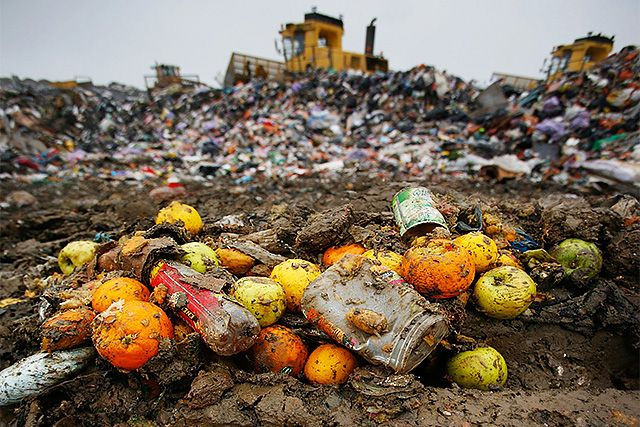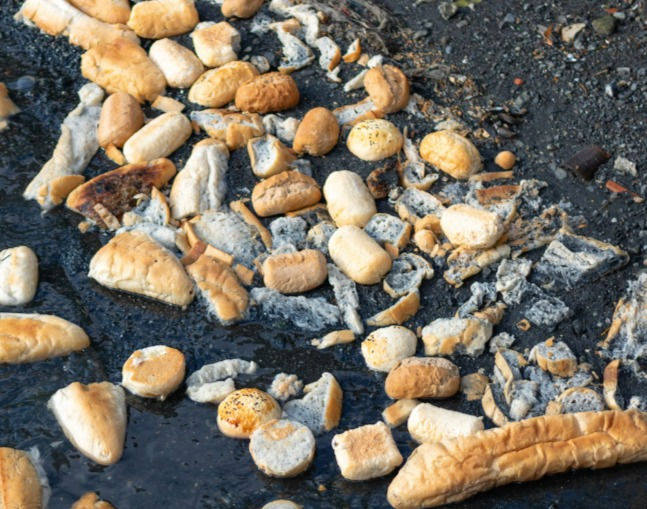I once played Oliver in a school play many years ago. Even if I say so myself, my rendition of ‘Where is love’ brought tears to the eyes of countless audience members – perhaps because my voice was ‘on the turn’, and I couldn’t quite reach that top note! The familiar line that comes to mind when you mention the musical is, ‘Please sir, can I have some more?’
Oliver’s question returned to me earlier in the week, brought about through some material I was researching on ecology and the impact that the gospel might have on it. My research thesis is the critique that, as Christians, we suffer from ‘ecological amnesia.’ Primarily, we separate people from the land physically (in terms of their location) and existentially (how we relate). Through what might be considered a poor interpretation of the Genesis creation account, we construe the notion of being created in God’s image and given dominion over the earth as license for absolute domination over all other creatures and creation itself. For some, it is a justification for the rate at which we are expending the earth’s resources, with little thought as to the consequences of our request for more and more. I find it somewhat ironic that God has been using the prophets of Attenborough, Thunberg, and Gore to remind us that overlooking our first job description as humankind (watching over and caring for the soil - Genesis 2:15) leads to catastrophic change and destruction. What for me at this time is an urgent topic to reconsider is our relationship with food, namely its production, processing, and distribution.


I was shocked by recent statistics from The United Nations, who estimate that more than 820 million people worldwide are hungry. At the same time, obesity is hitting record levels at a staggering 830 million worldwide. According to Ruth Valerio, the Global Advocacy and Influencing Director for Tearfund, each month, we throw away enough bread from our homes to fill St Paul’s Cathedral. In our quest for more, our ability to create waste and destruction is genuinely frightening and needs a response from us as Christians. As an interesting aside, Jesus’ words in John 6:12 could provide a timely challenge to us today – what might it mean for us to gather the surplus and redistribute it? Perhaps the Community Grocery initiative could be utilised as a model within our rural context. Bardney Community, part of the RM network, are soon launching a rural version of the grocery initiative. It is a model that could work in other rural locations.
Our media is filled with stories of food price inflation; I wonder if we are paying the price of commodifying food to such an extent that issues around availability, cost, convenience, and brand instead of paying attention to the ethical and ecological questions such as where it comes from, who has paid the true production cost, what are the ethics of seasonal food being available all year round, and farmers not receiving a fair price for their produce?
I find myself somewhat uncomfortably reflecting on what a gospel impact might be on the soil, the flora and fauna? What is the good news alternative to the mass consumption of fossil fuels? Is it to hope we get a new world? I believe we will get a renewed and reconciled world, but the image of Jesus destroying what God created to give us a brand-new world doesn’t sit right with me. Nor does reducing gospel work to primarily ‘saving souls’; indeed, this is bad theology, resonating with a Socratic worldview that sees bodies as having no place in our future eternal life. Doesn’t the fact that Jesus, in resurrected form, eats food challenge this? Yes, there was something different about him, but the resurrection was not simply a ghostly apparition – it was Jesus in a physical body that enjoyed and ate food with his friends.
How might the gospel impact us to consider carefully and prayerfully where we buy our food, how much we buy, and how we recycle waste? Would it involve us becoming ‘locavores’ (eating seasonal food sourced locally) rather than demanding fresh Kumquat and Quinoa in the depths of winter? Would it prompt us to address food miles, fair trade, and intensive farming practices? I think it possibly would.
Luke reminds us that the early Christians broke bread together in one another’s homes and shared their meals with great joy and generosity. (Acts 2:46) What might a Christlike understanding of sharing food with the homeless, the hungry, the lonely and the lost look like for us today other than through food banks? How might we see our responsibility as Christians within creation? What might our duty towards nature and the Creator look like if we consider it part of our witness to our faith and the gospel message? Could the gospel cause us to rephrase Oliver’s question, ‘Please sir, can they have more?’
Simon Mattholie CEO, Rural Ministries
Comments